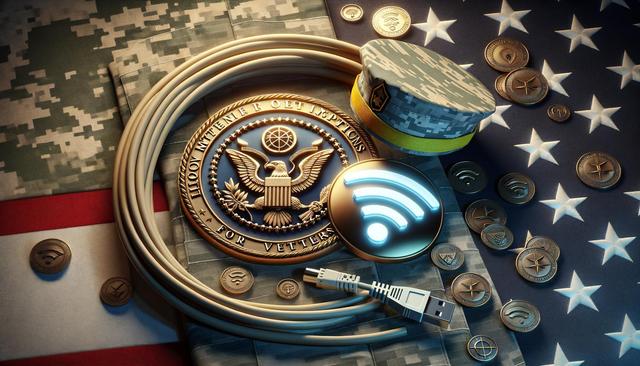Understanding the Need for Low-Cost Internet
Access to the internet is no longer a luxury—it’s a necessity for everything from healthcare access and job applications to maintaining personal connections. For veterans, especially those living on fixed incomes or transitioning to civilian life, the cost of internet service can be a barrier. Recognizing this need, various programs and providers have stepped up to offer low-cost internet options specifically geared toward veterans and low-income households. Understanding why these programs are essential is the first step in identifying the best path to staying connected.
Veterans may face unique challenges such as limited mobility, rural living conditions, or financial constraints. Affordable internet helps bridge the gap in communication and information access, offering a valuable resource for managing VA benefits, accessing telehealth services, and pursuing online education or job training. By knowing what’s available, veterans can secure the digital tools they need for a smoother and more empowered life post-service.
Federal Assistance Programs Offering Internet Support
One of the most significant sources of support for veterans seeking budget-friendly internet options is the federal government. Programs like the Affordable Connectivity Program (ACP) and Lifeline provide monthly discounts on broadband services and connected devices for eligible individuals, including many veterans. These initiatives are designed to ensure that no one is left behind in the digital age.
Key benefits of these programs include:
- Monthly discounts on broadband internet service
- One-time discounts on the purchase of a laptop, desktop computer, or tablet
- Coverage across a wide range of internet service providers
To qualify for these programs, veterans typically need to meet income requirements or participate in other assistance programs such as Medicaid, SNAP, or Veterans Pension and Survivors Benefit. Applying is straightforward and can often be done online through the federal program’s official portal.
Nonprofit Organizations Supporting Connectivity
In addition to federal programs, several nonprofit organizations work to provide veterans with reliable and low-cost internet access. These organizations often collaborate with internet service providers to deliver targeted support. Some also offer digital literacy training and assistance with devices to ensure veterans can make the most of their internet connection.
Examples of support services from nonprofits may include:
- Free or discounted laptops and tablets for veterans in need
- Digital skills training to improve online job hunting or communication
- Help navigating online VA services and healthcare portals
These organizations are typically focused on reducing the digital divide among underserved groups, and veterans are a key demographic they aim to assist. Reaching out to local veterans’ groups or community centers can be a helpful way to discover nonprofit resources available in your area.
Low-Cost Plans from Internet Service Providers
Several internet service providers (ISPs) offer discounted plans tailored to low-income households, including veterans. These plans often come with no long-term contracts, no installation fees, and options for free modems or routers. While the exact offerings vary by region and provider, many of these plans are designed to meet basic internet needs like web browsing, email, and video calls.
Features of typical low-cost ISP plans for veterans include:
- Download speeds sufficient for basic use (e.g., 25 Mbps or higher)
- Monthly pricing significantly lower than standard plans
- Flexibility with no annual contract requirements
Veterans should compare available providers in their area to find the most suitable plan. It’s also important to ask about any additional support or discounts for veterans, as some ISPs may offer special promotions not widely advertised.
Digital Literacy and Tech Support for Veterans
Even with affordable internet access, navigating the digital world can be challenging for some veterans, especially those less familiar with technology. That’s where digital literacy programs come in. Many public libraries, community colleges, and nonprofit groups offer free or low-cost classes to help individuals build essential computer and internet skills.
Common topics covered in digital literacy programs include:
- Using email and social media safely
- Accessing government and VA services online
- Basic troubleshooting for internet connectivity
Some programs are specifically tailored for veterans and may include peer support groups or veteran-focused instruction. These resources not only improve confidence in using technology but also ensure that veterans can fully benefit from the internet access they’ve secured.
Conclusion: Empowering Veterans Through Connectivity
For veterans, affordable internet access is more than just a convenience—it’s a lifeline to opportunities, support, and well-being. With a variety of federal programs, nonprofit initiatives, and low-cost provider options available, staying connected is within reach. By taking advantage of these resources, veterans can enhance their quality of life, pursue new goals, and remain engaged in their communities. Whether you’re a veteran or supporting one, understanding the available options is a critical step toward digital inclusion and empowerment.







